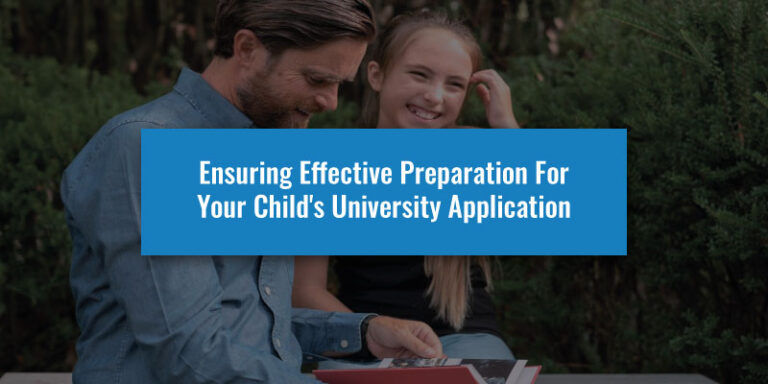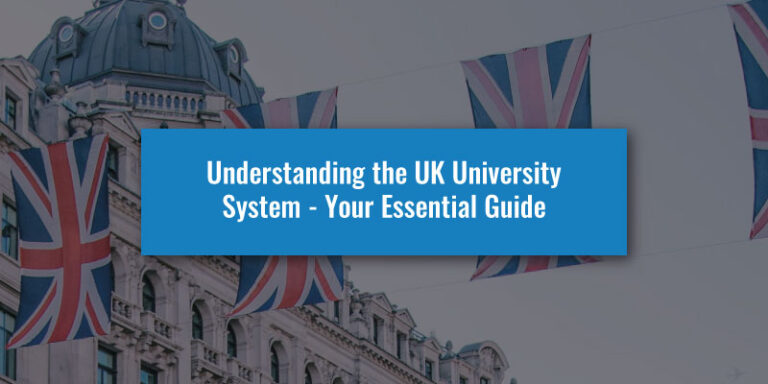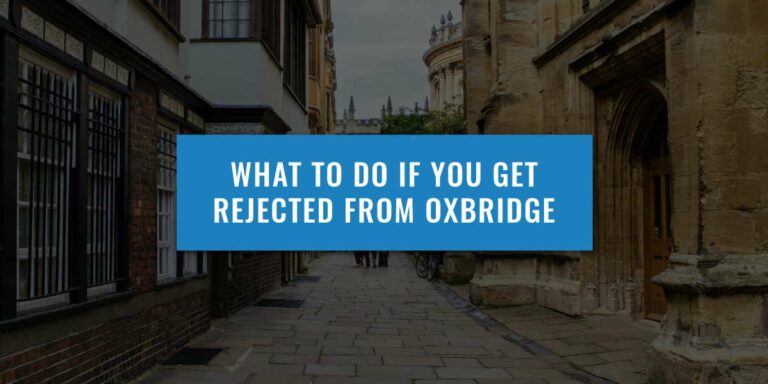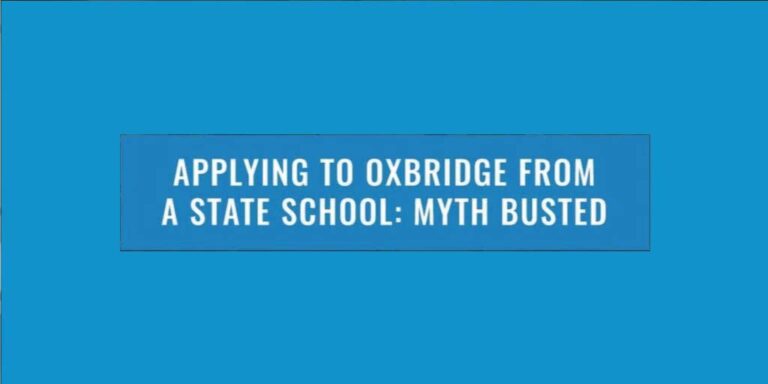When you think about famous and prestigious universities across the world, you may think of one example very quickly – the University of Oxford. Oxford is renowned for its nearly 1,000-year history and quality teaching, but it is also extremely difficult to get a place there.
With the popularity of the university, they receive tens of thousands of applications each year from all across the world. Being one of the few people to get an offer is difficult for those in the UK, but it is even harder for those from other countries as the number of places available to international students is very small.
However, if you are confident in yourself, it is still worth applying as you will still have a chance of being accepted. In this guide, we will look at everything you will need to do in order to apply to Oxford and have a chance of earning your place.
How Hard Is It To Get Into Oxford As An International Applicant?
First, let’s consider exactly how hard it is to get into Oxford. To do so, we simply need to look at the application and admissions statistics for International Oxford applicants in 2023:
Oxford UK Acceptance Rate 2023
Applicants: 14,636
% of Total Applicants: 63.1%
Offers: 2,905
% of Total Offers: 78.1%
Acceptances: 2,560
% of Total Acceptances: 79.5%
Acceptance Rate: 11.9%
Applicants: 1,572
% of Total Applicants: 6.8%
Offers: 150
% of Total Offers: 4.0%
Acceptances: 119
% of Total Acceptances: 3.7%
Acceptance Rate: 0.5%
Oxford International Acceptance Rate 2023 (Non-EU)
Oxford International Acceptance Rate 2023 (EU)
Applicants: 7,003
% of Total Applicants: 30.2%
Offers: 666
% of Total Offers: 17.9%
Acceptances: 540
% of Total Acceptances: 16.8%
Acceptance Rate: 2.3%
Based on the total number of applicants (23,211) Oxford’s acceptance rates are very low for international applicants. However, even the acceptance rate for UK applicants is low and the overall Oxford acceptance rate sits at just above 13% out of all applicants. You can learn even more about Oxford application data, including which countries have the highest success rates, in our Oxford Acceptance Rates Guide.
Despite this, there are still some points you should consider that may help you earn your offer:
The Oxford application is not entirely luck-based; you will have multiple chances to express why you are an ideal candidate for Oxford and why they should admit you.
If you have thoroughly prepared your application, you will have a significant advantage over many of your competitors. With over 20,000 applicants per university each year, not everyone will approach their application with the same level of seriousness. As long as you have put in the effort and can demonstrate your abilities, you will be competing with a much smaller pool of equally qualified candidates.
These are general acceptance rates for the whole university, so your chances of getting into Oxford will vary based on the subject you are applying for. Some subjects actually have very high success rates while others are even lower than the general acceptance rate.

Oxford Or Cambridge?
The University of Oxford is very closely linked with the University of Cambridge due to their joint history and similar teaching styles that are not seen anywhere else in the UK. Together, the two universities are known as Oxbridge.
This association means that many applicants will have to ask the question “Oxford or Cambridge?”. You cannot apply to both universities due to rules within the UK university application system, so you will also need to decide which university appeals to you more.
You can learn more about how these two universities compare to each other in our guide to Oxford vs Cambridge, but let’s briefly see how international applicants performed at Cambridge in 2023:
Cambridge International Acceptance Rate 2023
Applicants: 7,565
% of Total Applicants: 35,3%
Offers: 1,137
% of Total Offers: 25.0%
Acceptances: 821
% of Total Acceptances: 23.1%
Acceptance Rate: 3.8%
As you can see, applicants at Cambridge did slightly better than those at Oxford. However, the acceptance rates are still incredibly low for universities in the UK, so be prepared to work hard if you want your spot at either university.
Looking for support with your Oxford application?
No matter where in the world you are, UniAdmissions’ Full-Blue Programmes are available to boost your chances of earning your offer at Oxford. Each programme includes one-to-one tuition, hundreds of preparation materials, live courses, unlimited Personal Statement/essay marking and much more.
Discover our Oxbridge Full-Blue Programmes by clicking the button below to learn how you can enrol and triple your chances of success.
The Oxford Application Process For International Applicants
Now that we understand how challenging it is to get in, let’s look at the process you will need to go through to be able to be considered for a spot on your chosen course.
The process to apply to both Oxford and Cambridge is more complicated than most other UK university applications, with various additional steps that have been put in place to ensure only the best of the best are admitted. You will have to work your way through all of these steps to a high standard for your application to be competitive, so let’s see what will be required of you to get into Oxford:
Grade Requirements
Before you begin your application, it is important to be aware of the grades that you will be required to achieve as a student. These minimum grade requirements are very high, meaning only those who perform well academically will have a chance to study at Oxford.
Oxford accepts many forms of international qualification and has a webpage available which outlines the grade requirements for applicants from every country. However, we will look at the minimum required grades for the two most popular qualifications:
Oxford A-Level Requirement
A-Levels are the primary qualification in the UK and are taught in many other countries too. Courses at Oxford have different minimum grade requirements, but this is the range that all requirements fall into:
AAA – A*A*A
Oxford International Baccalaureate Grade Requirements
International Baccalaureates are an alternative qualification that can be taken in many different countries around the world. These are helpful to take if your country’s standard qualification is not accepted. To be admitted, applicants need to score within this range:
39 – 42, with 766 or 776 at higher level
Alongside the grade requirements, some courses will require applicants to have achieved a grade in a specific subject, usually for STEM-based subjects like Medicine, Engineering and Physics. You will need to ensure you are taking these subjects before applying to the specific course at Oxford.
Also, be aware that these are just the minimum grade requirements. In reality, most successful applicants actually score higher than the grades listed here, typically achieving 3 A*s in their A-Levels.
The UCAS Application
The first major step is the UCAS application process. In brief, the Universities and Colleges Admissions Service (UCAS) is the organisation responsible for managing all university applications in the UK, including those from international students. To apply, you will need to create an account and complete the application form with your personal details, education history, and university choices. You will also be required to submit your Personal Statement and an academic reference through UCAS.
UCAS is the only way to apply to a university in the UK, so you will have to follow the process in order to be considered at any UK university, not just Oxford.
How To Apply To Oxford Through UCAS
The process of applying to Oxford is actually very similar to applying to other UK universities, though with one major difference.
To apply via UCAS, applicants need to create an account on the UCAS Hub when registrations open in May. Once your account is created you will need to provide the information mentioned earlier, including information on where you live, your education/employment history and contact details. You will also need to select up to five university courses to apply to (remember that you cannot select Oxford and Cambridge in the same application) and pay a fee to submit your application.
Along with providing the information, you will need to get a reference from a teacher at your school and write a Personal Statement that reflects yourself as an applicant (more on this later).
You can start filling out this information as soon as you have created an account, but you cannot submit this application to your university choices until the beginning of September. From there, you have until the application deadline to finalise everything and send it off.
You can start filling out this information as soon as you have created an account, but you cannot submit this application to your university choices until the beginning of September. From there, you have until the application deadline to finalise everything and send it off.
If you want to learn more about the UCAS application process, read our UCAS Explained Guide for full coverage.
Access "The Oxbridge Application Vault"
- 300+ page ebook for Oxbridge Applicants
- 25 page ebook for Personal Statement
- 2h+ online course to succeed in any exam
- Online Oxbridge Success Calculator
- 12 page ebook about UniAdmissions
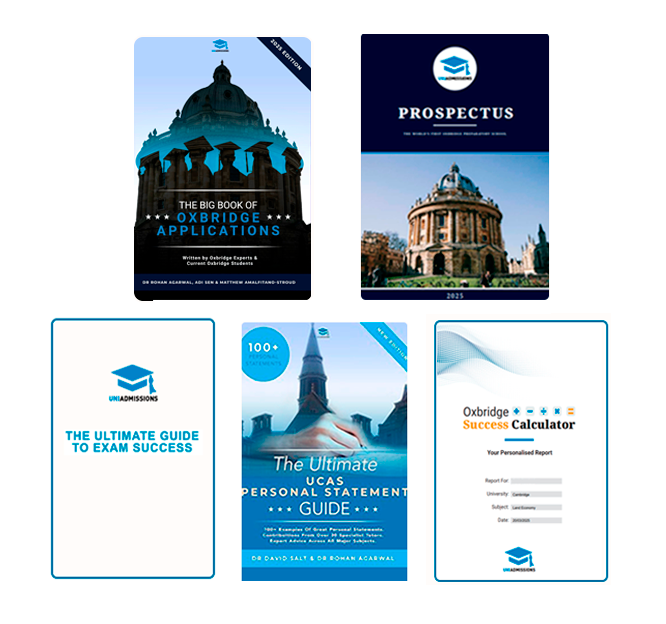
Access "The Big Book Of Oxbridge Applications" For FREE
If you want to learn more about applying to and studying at Oxford, get The Big Book Of Oxbridge Applications, available for free right here! Through over 350 pages, you will find:
- 28 example Oxbridge Personal Statements
- Over 40 admissions test practice questions
- Interviews with Oxbridge students and graduates
- Additional downloadable resources
Fill in your details below to claim your digital copy today!
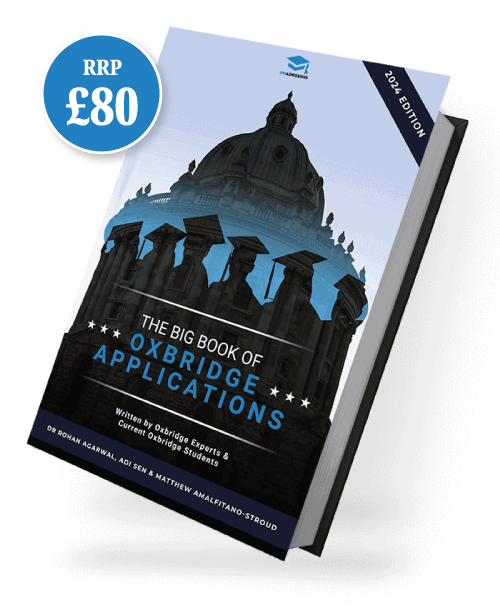
The Personal Statement
As mentioned previously, your UCAS application will need to include a Personal Statement. This is a three-part piece that is submitted digitally via the UCAS Hub and must be no longer than 4,000 characters long. When submitted, your Personal Statement will be sent to all of your university choices.
What Should My Personal Statement Include?
Your Personal Statement is meant to be a way to introduce yourself as a good candidate for your university choices. This is done by answering the three questions that make up the framework for the Personal Statement:
- Why do you want to study this course or subject?
- How have your qualifications and studies helped you to prepare for this course or subject?
- What else have you done to prepare outside of education, and why are these experiences useful?
Rather than focusing on your personality and general life experiences when answering these questions (which is how college essays are generally written in countries like the USA), your statement should focus on your academic achievements and experiences that relate to your chosen subject. Examples of things to include are:
Motivations
The first question of your Personal Statement focuses on why you’ve chosen to study your particular subject or course. This is your opportunity to share your personal journey and explain what sparked your interest. Was there a person who inspired you, or an event that influenced your decision to pursue this path? This is the section where you can detail how you arrived at this point in your academic and career aspirations.
Additionally, you should highlight your future aspirations and explain what you plan to do once you’ve finished your course. This helps show that you have a clear vision of how your time at Oxford will contribute to your long-term goals and how you’ll make the most of the opportunity.
Grades & School Work
Question 2 of the Personal Statement is all about your academic achievements. This will primarily be your chance to explain how you perform at school and any notable achievements you may have accomplished that relate to your application. You can also discuss other formal qualifications that you may have achieved outside of school, such as winning an academic competition. However, you’ll need to ensure everything you discuss is relevant and recent, as the admissions tutors are less interested in things you accomplished several years ago.
Work Experience
Some subjects require applicants to complete work experience to be competitive, but most applicants for most Oxford courses will benefit from some kind of relevant work experience. These should not be generic jobs like working at a restaurant but should be related to your subject in some way. This is sometimes easy, like getting placement at a hospital or care home for medicine, but other courses are harder to find relevant work experience for.
However, as long as you can link the skills learnt in your work experience to the skills required to excel in your chosen subject, your work experience should be beneficial.
Super-Curricular Activities
Rather than discussing activities you like to do in your free time, such as sports or hobbies, you should dedicate space in your Personal Statement to discuss activities and experiences you have had that are relevant to your course. This could be a competition you entered, a trip you took or research that you have conducted. As long it links to your course and has taught you helpful skills, these will be worth mentioning.
Wider Reading
Though you should not discuss this too much, it is a good idea to mention how you like to engage with your subject outside of studying. Is there a specific book that stood out to you or a topic that interests you? If so, be sure to mention it as it will help you appear knowledgeable and dedicated to your subject.
The most important thing to remember when writing a Personal Statement is that everything should be relevant both to the question you’re answering and to the course you’re applying for. You should also reflect on what you have learnt and how that has made you a good candidate, as this kind of awareness of oneself is essential to success at Oxford. If you can look back on what you have accomplished and understand why it is important, then you will be able to impress the admissions tutors at any university you apply to.
If you want to learn more about how to write a UCAS Personal Statement, our Ultimate UCAS Personal Statement guide is here to help!
Every part of the Oxford application process counts, so get it right with UniAdmissions
At UniAdmissions, we are specialists in getting applicants from all over the world into Oxbridge. With our expertly crafted curriculum, extensive preparation materials and innovative Portal, we have developed programmes that cater to applicants of over 30 subjects across Oxford, Cambridge and more.
Discover our Oxbridge Full-Blue Programmes by clicking the button below to learn how you can enrol and triple your chances of success.
Oxford Admissions Tests
So far, everything we have discussed has been relevant for all UK university applicants, not just Oxford applicants. However, we are now moving into the aspects of the application that are exclusively for Oxford. The first of these is the admissions test.
While not every course at Oxford requires an admissions test, most of the popular and highly competitive courses do so you will likely need to prepare for one. These tests are designed to help admissions tutors find the most highly skilled applicants by providing test results based on questions that are relevant to the subject and test skills that are important for students.
At Oxford, there are a variety of admissions tests that take different forms, such as:
- Multiple-Choice Questions
- Written Questions
- Essays
- Translation Tasks
What you need to do will depend on what knowledge and skills are required for your degree, as the tests are designed to reflect a part of what you will be learning at university.
Below are all the admissions tests used by Oxford:
Oxford Admissions Tests
- University Clinical Aptitude Test (UCAT): Required for Medicine
- Law National Aptitude Test (LNAT): Required for Law (and course variants)
- Mathematics Admissions Test (MAT): Required for Mathematics and Computer Science (and joint courses)
- Physics Admissions Test (PAT): Required for Physics, Engineering and Material Sciences
- Thinking Skills Assessment (TSA): Required for PPE, Economics & Management, PPL and more
- Biomedical Sciences Admissions Test (BMSAT): Required for Biomedical Sciences
- Ancient History and Classical Archaeology Admissions Test (AHCAAT): Required for Classical Archaeology and Ancient History
- Modern Languages Admissions Test (MLAT): Required for Modern Languages and European & Middle Eastern Languages (and joint courses)
- Classics Admissions Test (CAT): Required for Classics (and joint courses)
- Philosophy Test (PhilAT): Required for Philosophy & Theology
How Are Oxford Admissions Test Used?
Usually, your results will be used in combination with the rest of your application to determine if you should be invited to attend interviews. They will also be used during the final decision-making process. Be aware that there are not any minimum score requirements for Oxford admissions tests, so getting a low score doesn’t mean your application will be automatically disregarded.
How To Prepare For An Oxford Admissions Test
These tests can be incredibly difficult, so preparation is essential. There are multiple ways to do so, though some methods will be more effective in certain tests compared to others due to the formats:
Subject Revision: You are likely used to revising the content of your exams for schools, but this is not always a viable revision method for Oxford admissions tests. Various admissions tests like the UCAT and TSA do not have any required knowledge, so there is not anything you can read about or revise. However, for tests like the PAT or MAT, revision will be important to understanding the required knowledge.
Review The Test Format: Before starting your preparation, you need to understand the actual format of the test. This will include different sections, the number of questions, the format of the questions and the time limits. All of this information will be essential to ensure you know what you are doing on the day of the test.
Practice Questions: In most cases, the most effective way to prepare for an admissions test is to work through practice questions from the exam. This can be done at your own pace and will let you gradually get better at the questions in the test. There are various ways to get practice questions, including past papers and question banks, but we would suggest finding practice questions that include worked solutions so you can understand how to get the correct answer.
Mock Exams: Lastly, it is important that you complete at least two mock exams before sitting the real thing. These should be full papers taken in exam conditions, including the time limit. Working through an exam like this will give you a realistic experience of what the actual test will be like, and doing this multiple times will let you gradually improve and get used to the exam conditions.
The English Language Proficiency Test For Oxford
This is not an exclusive requirement for Oxford applicants, as any international applicant for UK universities will need to complete an English Language Proficiency Test if English is not their first language. Oxford accepts various different tests, but the IELTS is generally the most popular of the available tests.
These tests are designed to test an applicant’s English comprehension in reading, writing, listening and speaking to ensure they meet the standards required to study in the UK. For Oxford, the minimum required score for the IELTS is as follows:
Oxford IELTS Score Requirement
Oxford requires 7.5 overall with at least 7.0 in each component (Listening, Reading, Writing, Speaking). Be aware that the IELTS General, IELTS UKVI General and IELTS life skills tests are not accepted by Oxford, only the IELTS academic.
You do not have to complete the test before you submit your application as it can be completed as late as June the following year. However, this does mean you will need to achieve the minimum score for your offer to be accepted (should you get an offer). You are also able to submit results from as early as two years prior in some cases, though always be sure to check the cut-offs for these dates.
The Oxford Interviews
The interviews are the final major step of the Oxford application process and are usually the most important part. While you were able to submit your Personal Statement to introduce yourself to the admissions tutor, the interviews are your chance to actually meet and have conversations with them.
These interviews are a great opportunity to sell yourself to the faculty, but they are not easy. Let’s explore some of the most important questions to ask regarding Oxford interviews:
Who Gets Interviewed At Oxford?
Not every applicant will have a chance to be interviewed, but how many actually get invited? On average, roughly 30% of applicants will be interviewed at Oxford each year. This is much lower than at Cambridge, which interviews around 70% of applicants.
When Are Oxford Interviews?
Oxford interviews take place in the first three weeks of December. These interviews are all remote, meaning you will not need to travel to the UK to attend.
How Many Interviews Will I Attend?
The vast majority of applicants will attend at least two interviews during this period, though some courses will require more than this. These will either be split up over multiple days or held on the same day.
Beyond the initial round of interviews, you may be asked to attend another interview at a different college (more on this soon).
How Are Oxford Interviews Held?
As mentioned before, Oxford holds all interviews remotely. These interviews are structured as a panel-style interview in which you will be speaking with two or three members of faculty at the college you are applying for.
During these interviews, you will be asked a variety of questions relating to your motivations, experiences and opinions on topics relating to the course. You may also need to solve problems, discuss an image or piece of writing and sometimes answer weird and unexpected questions. You will need to be concise when answering these questions, though you will have time to think as well.
Additional Application Requirements
We have now discussed all of the major steps in the application process, but there are two additional things you will need to consider when applying to Oxford:
College Selection
Selecting your college is arguably one of the most important things to do in your application. If you are not already aware, Oxford operates using a collegiate system, meaning the university is comprised of over 30 colleges that house students during their studies. In the application process, you are not just applying to the university as a whole but to a specific college. The faculty of this college will decide if you are admitted or not based on everything you have provided in your application.
Colleges affect your life as an Oxford student in a number of ways as they determine many aspects of your experience. Colleges at Oxford will be responsible for your accommodation, catering, various social/formal events and aspects of your teaching, including your Tutorials.
This means that your choice of college is important, as they can be very different from one another and will have a significant impact on how your time at Oxford goes. You can learn about all of the colleges at Oxford in our Oxford College Guide, plus you can learn about the best colleges for international Oxford applicants here.
Written Work
As we mentioned, not all courses require admissions tests, so how do admissions tutors on these courses view each applicant’s academic potential? In some cases, applicants will instead need to submit a piece of work, which will be viewed by Oxford as an assessment of their capabilities.
Although it is referred to as “written work”, what you have to submit will actually vary depending on your course. In most cases, you will need to submit some form of essay, but courses such as Fine Art and Music will require you to present something more relevant to the subject, like a portfolio or composition.
Generally, you will not have to create a new piece of work for this but will instead need to submit a piece that has already been marked by a teacher. Everything must be submitted digitally and there are specific rules you will need to follow, so make sure you know what you have to do.
We have a guide dedicated to Oxbridge Written Work which covers which courses require it and how you should submit your work, so be sure to check it out to learn more.
That is every major step of the Oxford application process covered. Some colleges may have additional steps for specific courses, such as additional admissions tests and submission requirements, but these are the steps that the majority of applicants will need to complete to earn their offer.
We hope this guide has helped you understand just how challenging this process is, but we also hope that you feel inspired to give it your best to give yourself a good chance to succeed. The process is tough, but if you are truly dedicated to studying at Oxford, everything you have to do should be manageable and will help prepare you for studying at Oxford, which is equally challenging.
Remember that there is no such thing as the “perfect” applicant, but Oxford admission tutors are not expecting that. They want to see applicants who have a deep interest in their subject and a drive to work independently to achieve their goals. If you are able to demonstrate both of these traits in your application, you shall stand a good chance of being successful.
However, this is easier said than done and you may feel you need some guidance through this process. If so, we would recommend exploring our Oxbridge Full-Blue Programmes, which are specifically designed to get applicants into Oxford and Cambridge. Through a mixture of one-to-one tutoring sessions, regular live sessions, extensive preparation materials and more, we have been able to consistently triple out students’ chances of success in their application. If you would like to work with us, discover the perfect programme for you here or book a free consultation with our admissions team to find out how you can enrol.
Boost your chances of getting into Oxford with expert support from UniAdmissions
No matter where in the world you are, UniAdmissions’ Full-Blue Programmes are available to boost your chances of earning your offer at Oxford. Each programme includes one-to-one tuition, hundreds of preparation materials, live courses, unlimited Personal Statement/essay marking and much more.
Discover our Oxbridge Full-Blue Programmes by clicking the button below to learn how you can enrol and triple your chances of success.

